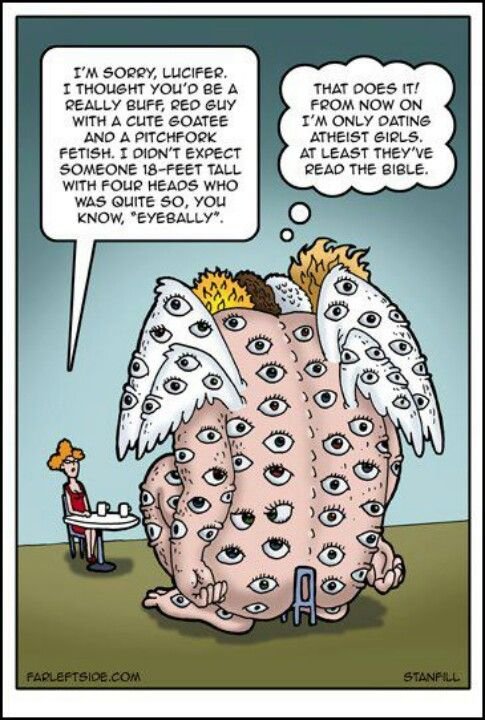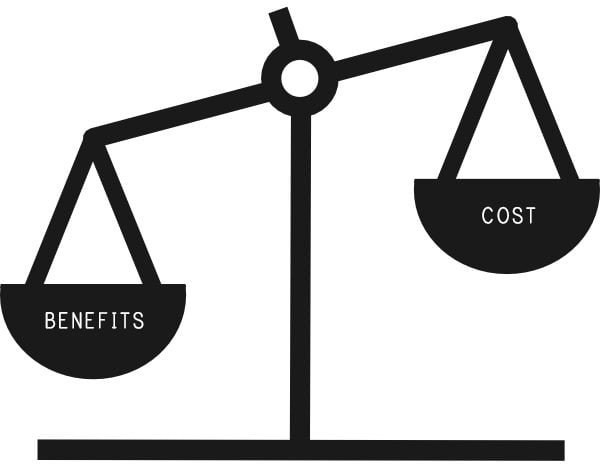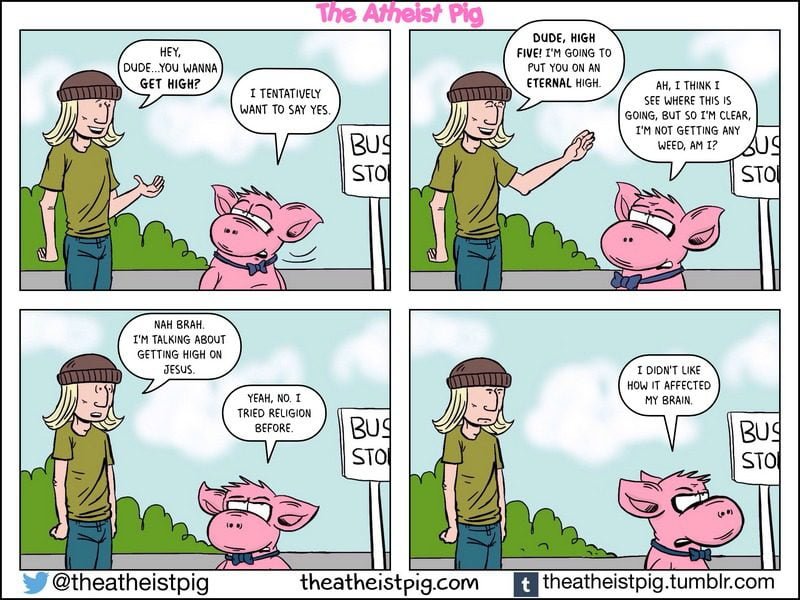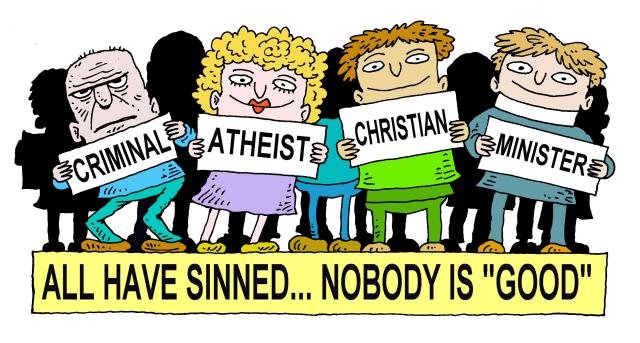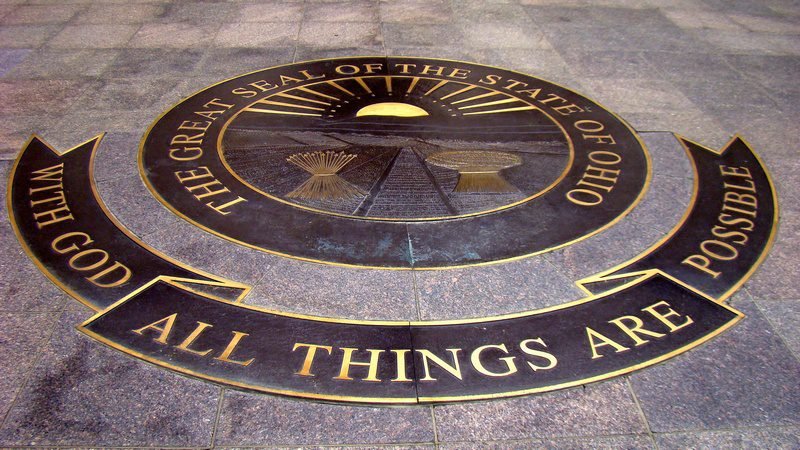
A reader named Ron Lawson recently commented on the post The Scandalous Life of Jack Hyles and Why it Still Matters. That post is about Independent Fundamentalist Baptist (IFB) megachurch pastor Jack Hyles, yet Lawson’s comment says nothing about Hyles or what I wrote about him. Instead, Lawson wrote (all spelling and grammar in the original):
I am amazed at the incredible intelligence on this post. Science cant even tell how a single cell developed from non-life to life or where the book of our DNA came from or how it teaches cells to differentiate themselves into various organs, eyes etc. and yet we are certain there is no god.
I pray there is a God or we are cursed to be the highest intelligence and we have nothing to hate for all of the inhumanity to man that is caused by evil people… if evil is even a thing… that very concept presupposes there is a standard outside of ourselves that pre-dates our birth that has somehow come to the awareness that there is such a thing.
Lawson begins his comment by sarcastically saying “I am amazed at the incredible intelligence on this post.” Lawson makes no effort to respond to or address what I wrote about Jack Hyles. Instead, he wants to insult me personally — suggesting I am lacking in intelligence when it comes to biology. Granted, I am not a scientist, and I assume neither is Lawson, but he once spent the night at a Holiday Inn Express, so that means he is qualified to speak on scientific matters.
I will soon turn sixty-seven years old. I have made a lot of mistakes in life. As a young IFB preacher, I was certain that I was right. Arrogantly, I thought I could opine on every aspect of life even if I lacked knowledge, training, and education on a particular subject. This was especially so with matters of science. In high school, I took biology and earth science. In college, I took biology — which was a colossal waste of time. That’s it. While I have tried my best to advance my understanding of science over the years, I am in no way qualified to speak on such issues. I rely on experts in their relevant scientific fields to educate me when I have questions. When people raise science-related questions in the comment section, I typically defer to readers who actually know what they are talking about. I know what I know, but more importantly, I know what I don’t know.
Maybe Lawson has a science education. I doubt it, but maybe. Most Evangelicals who leave comments such as his lack actual science training. Their scientific knowledge comes from apologetics books, websites, and podcasts. Scores of Evangelicals have commented on this site, pontificating on biology, cosmology, or archeology. Yet, when pressed on their educational background or how they came to “know” what they know, you quickly find out that they have no knowledge beyond their literalist interpretations of the Bible, what their pastors say on Sundays, or what they read or watched on sites such as Answers in Genesis, Dr. Dino (Kent Hovind), or the Institute for Creation Research (ICR) — to name a few.
If Lawson comments again, perhaps he will let us know why we should listen to anything he has to say; what qualifications does he have to speak authoritatively about biology? If Lawson wants to discuss Evangelicalism or the IFB church movement, I am more than happy to do so. Why? Because I am an expert in these subjects, and I am conversant on religion in general. However, I try not to expose my ignorance when it comes to science. I am more than happy to have general conversations about science, but an expert I am not. So, anything I say about science should be understood from that perspective.
Science does not have all the answers about anything. We know more than we did yesterday, but there is much we still do not know, and it is certain that we will never know everything. Evangelicals wrongly think that just because they can read the Bible, all of a sudden, they are an authority on what it says. Thus when they read Genesis 1-3, Evangelicals think they know how the universe and the biological world came into being. God did it. And since science can’t answer everything — cue up the God of the gaps argument — God did it. Just because science can’t answer a particular question doesn’t mean God is the answer. Most Evangelicals can’t even explain why there are two hopelessly contradictory creation accounts in the first three chapters of Genesis.
The Bible is a dead, antiquated religious text. When it comes to science, the Bible has nothing to offer. We know the universe was not created in six literal twenty-four-hour days. We know the earth is not 6,027 years old. We know Adam and Eve weren’t the first hominids. We know that many of the stories in the Old Testament, such as Noah and the Ark, Moses and the Jewish exodus, the tower of Babel, etc. are myths. Science tells us these things. The Bible? It is a product of its time, not meant to be used for scientific inquiry.
Lawson says that because science can’t answer certain questions — and I have no idea whether it can answer his challenges or not — we cannot say “there is no God.” I have never said that there is no God. I am an agnostic atheist. Unlike many theists, I know the limitations of my knowledge. I cannot know for certain whether a deity of some sort exists. A God of some sort may exist that has not yet made itself known to us. Is this likely or probable? No, but possible. Thus, I am agnostic on the God question. However, when it comes to the extant deities (all gods and religions are of human origin), I am an atheist, confident that these gods are myths. When it comes to the Abrahamic deities, I am confident that these gods and religions are the products of human minds. I am convinced that the central claims of Christianity are false.
As far as morality is concerned, I am persuaded that moral and ethical values come from our DNA and personal experiences and beliefs. If there was some sort of objective moral standard outside of ourselves, we would all have the same moral and ethical beliefs, at all times, throughout human history. Of course, we don’t. Even Christians can’t agree on morality. Morals change with time, and from person to person. Thus, morality is inherently subjective. It is when we gather into families, tribes, communities, and countries that we begin to develop moral codes and standards (which, again, vary from family to family, tribe to tribe, community to community, and country to country). We, collectively, agree that certain behaviors are moral (good) and others are immoral (bad). Because our highest goals are happiness and well-being, we often punish behaviors that negatively affect these goals. Ultimately, WE decide what is moral and ethical. (So, you think we are God? Yes.) 🙂 There is no God, who else decides besides us? Unless you think all morals are hardwired, you must believe morality is subjective. A separate issue, which I will not address at this time, is whether humans have free will. Even without free will, if happiness and well-being — both individually and corporately — are our goals, we can (must) govern human behavior through expectations and laws. While religions can and do play a part in the formation of our moral values, this doesn’t mean that a particular religion (and its deity and divine text) is the source, the grounding of human morality.
As far as evil, is concerned, evil is what humans do, based on what I stated above. We don’t need religion or a deity to declare a certain behavior or action is evil. I don’t need Jesus in my heart or knowledge of Lawson’s deity to know that slaughtering children and innocent civilians in war — as Israel is currently doing — is morally wrong. I make moral judgments every day, without God or appeals to a religious text (though I will readily admit my moral framework is informed by the five decades I spent as a follower of Jesus).
Lawson prays there is a God. Why? Isn’t it time we grew up and put off childish things, the vestiges of a pre-scientific age? Simply put, we don’t need the God of classical theism. He is a crutch people hang on to instead of doing the hard work necessary to determine how to morally and ethically live their lives. This path is messy, laden with challenges and contradictions, but more honest and fulfilling than appealing to mythical deities and ancient religious texts.
I appreciate Lawson taking the time to comment.
Saved by Reason,

Bruce Gerencser, 68, lives in rural Northwest Ohio with his wife of 47 years. He and his wife have six grown children and sixteen grandchildren. Bruce pastored Evangelical churches for twenty-five years in Ohio, Texas, and Michigan. Bruce left the ministry in 2005, and in 2008 he left Christianity. Bruce is now a humanist and an atheist.
Your comments are welcome and appreciated. All first-time comments are moderated. Please read the commenting rules before commenting.
You can email Bruce via the Contact Form.

